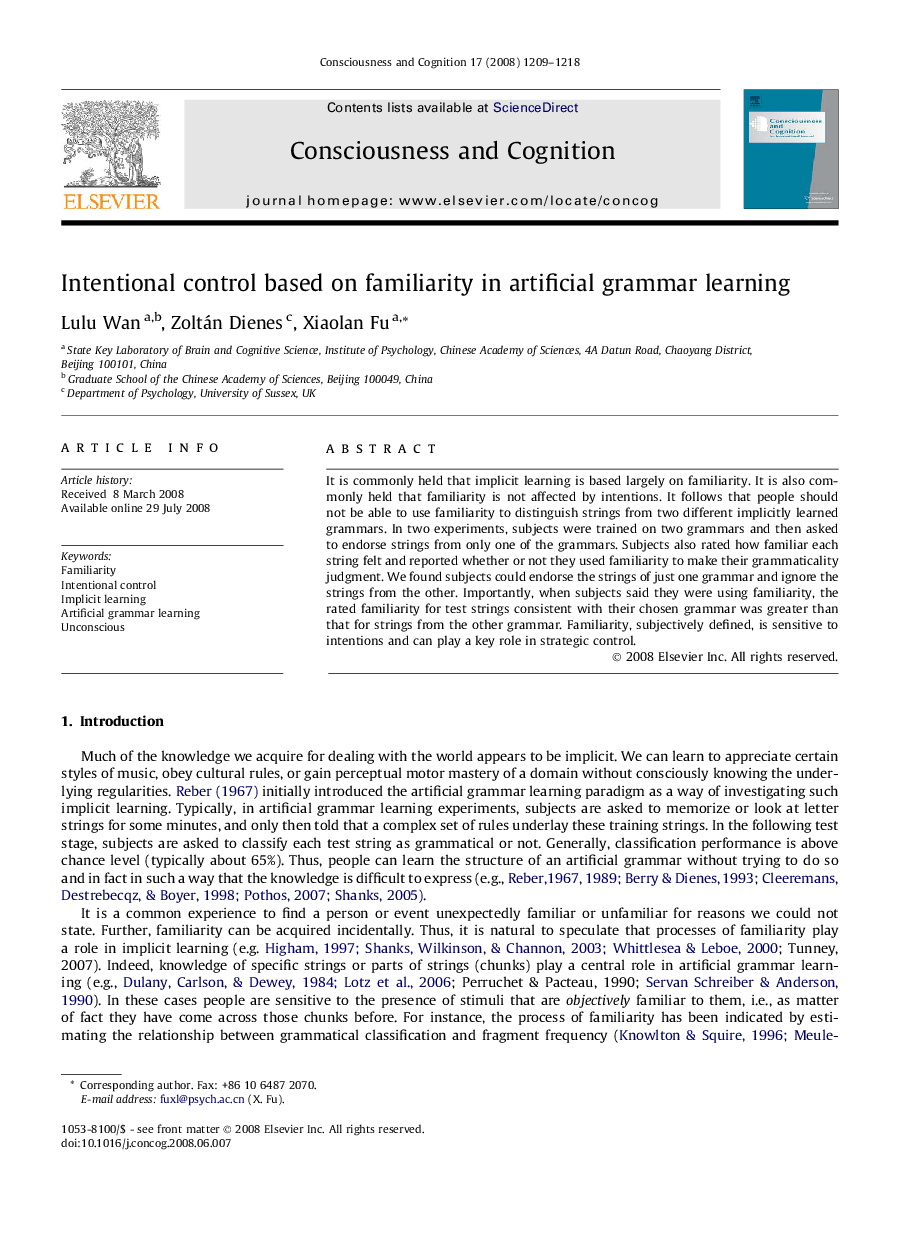| Article ID | Journal | Published Year | Pages | File Type |
|---|---|---|---|---|
| 928009 | Consciousness and Cognition | 2008 | 10 Pages |
It is commonly held that implicit learning is based largely on familiarity. It is also commonly held that familiarity is not affected by intentions. It follows that people should not be able to use familiarity to distinguish strings from two different implicitly learned grammars. In two experiments, subjects were trained on two grammars and then asked to endorse strings from only one of the grammars. Subjects also rated how familiar each string felt and reported whether or not they used familiarity to make their grammaticality judgment. We found subjects could endorse the strings of just one grammar and ignore the strings from the other. Importantly, when subjects said they were using familiarity, the rated familiarity for test strings consistent with their chosen grammar was greater than that for strings from the other grammar. Familiarity, subjectively defined, is sensitive to intentions and can play a key role in strategic control.
